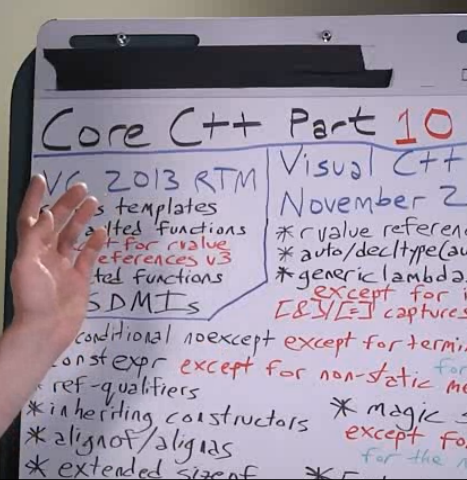Quick Q: What is this "C++ memory model" you speak of? -- StackOverflow
Quick A: First read Stroustrup's FAQ answer, before reading the SO answers which are also illuminating. For a deep answer and to really grok this topic, check out Sutter's slides from his three-hour deep-dive talk.
A 2011-vintage "new classic" from SO:
C++11 introduced a standardized memory model. What does it mean? And how is it going to affect C++ programming?
... So, what I basically want to know is, C++ programmers used to develop multi-threaded applications even before, so how does it matter if its POSIX threads, or Windows threads, or C++11 threads? What are the benefits? I want to understand the low-level details.
I also get this feeling that the C++11 memory model is somehow related to C++11 multi-threading support, as I often see these two together. If it is, how exactly? Why should they be related?
As I don't know how internals of multi-threading works, and what memory model means in general, please help me understand these concepts.

 The C++11 standard makes a distinction between acquire and release fences and acquire and release operations. The differences are important and can affect correctness as well as performance.
The C++11 standard makes a distinction between acquire and release fences and acquire and release operations. The differences are important and can affect correctness as well as performance. While we're waiting for Concepts Lite, Eric shows how we can already do quite a bit in C++11 while planning for a transition to language support when it's available.
While we're waiting for Concepts Lite, Eric shows how we can already do quite a bit in C++11 while planning for a transition to language support when it's available. For the first time in several years, Bjarne Stroustrup and Herb Sutter will hold a two-day seminar on C++
For the first time in several years, Bjarne Stroustrup and Herb Sutter will hold a two-day seminar on C++ Accompanying today's release of the
Accompanying today's release of the  The second part of my series about the papers for Chicago:
The second part of my series about the papers for Chicago: